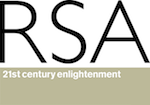I am not an artist by Lord Michael Bichard
|
I am not an artist. In fact my art teacher at school described me as the most boring pupil he had ever encountered. Although I thought this was a touch overstated, it was a setback to my creative ambitions and left me with few options but to become a bureaucrat….which I did.
Ultimately I recovered sufficiently to become the Vice Chancellor of the University of Arts, London, Chair of the Design Council, and one of the Founders of Artis which, for ten years now, has successfully provided inspirational arts education in primary schools.
In these various capacities I have come to understand the power of arts education and its importance to young people, our society and the economy. So why is it so important? Let me give you my reasons why:
2) Many school leavers lack essential social and employability skills. As a result they struggle to engage and find work. An arts education develops confidence and the capacity to communicate and present effectively.
3) It gives children with learning difficulties the chance to play a full part in class activities. I have seen many moving examples of children who generally find school difficult coming alive in drama, dance and the arts.
4) It builds our creative engine for the future. Our creative industries fuel our economy, not least in London. They not only produce GDP but provide the UK with a major international profile. That doesn’t happen by accident; creative skills need to be developed in primary school, not left until further and higher education.
5) An arts education enriches a child’s quality of life by fostering an understanding and appreciation of the creative arts that extends well into adulthood. An increased appreciation for the arts also creates an economic demand for it.
6) Art, like no other subject, is publicly assessed. The fact that the end product is visible makes it readily available for critics to appraise. Through this process, children become resilient, determined and courageous, qualities that cannot easily be taught.
7) Art is rarely an isolated activity. To be successful in drama, dance and music children must work effectively in teams, equipping them with another key ‘life skill’.
8) Our businesses need people who can be creative, think laterally and use their initiative. They need people who have learned the importance of challenging the accepted wisdom. Exposure to the arts and the mindset of artists at an early age helps pupils build these invaluable capabilities, giving them the ability to innovate and be creative beyond the boundaries of the creative arts.
9) Traditional education can too often concentrate on solving theoretical problems on paper. But the arts can make the abstract visual, taking theoretical problems out of the text book and placing them in the physical environment. This gives children the chance to visualise theoretical problems and explore creative solutions.
10) It gives children the opportunity to experience the sheer joy of creative achievement. What can compare to being involved in a successful performance after weeks or months of rehearsals full of setbacks and challenges? It’s a unique feeling which always stays with you.
Lord Michael Bichard, KCB, has been a member of the House of Lords since 2010, where he speaks on the importance of arts education. Prior to this, he served as a chief executive in central and local government, before moving onto become the Vice Chancellor of the University of Arts, London, the Chair of the Design Council, and a founder of Artis. |
11 Dec 2014 |
















